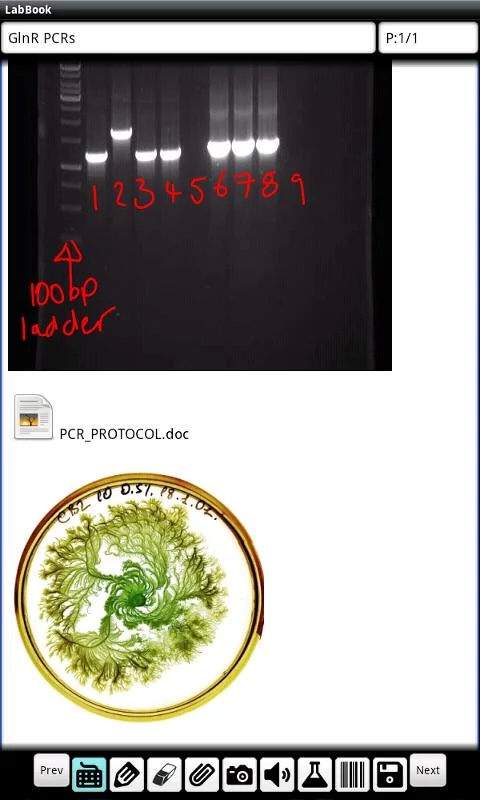LabBook
Posted on 28 February 2014
LabBook
Sustaining software via an open source project
 LabBook is a fast, accurate way to securely record and share experimental notes using a tablet or mobile phone. Developed by Mark Woodbridge, Geraint Barton and Derek Huntley of Imperial College London's Bioinformatics Support Service, LabBook aims to improve the accuracy and efficiency of recording experimental processes within the lab. By coupling a mobile app, used within the lab, and an online service, to which data can be delivered, LabBook seeks to combine the advantages of traditional paper notebooks with digital devices. LabBook's goal is to streamline the complete research workflow from bench to publication, and dramatically simplify collaboration, data archival and reproducibility.
LabBook is a fast, accurate way to securely record and share experimental notes using a tablet or mobile phone. Developed by Mark Woodbridge, Geraint Barton and Derek Huntley of Imperial College London's Bioinformatics Support Service, LabBook aims to improve the accuracy and efficiency of recording experimental processes within the lab. By coupling a mobile app, used within the lab, and an online service, to which data can be delivered, LabBook seeks to combine the advantages of traditional paper notebooks with digital devices. LabBook's goal is to streamline the complete research workflow from bench to publication, and dramatically simplify collaboration, data archival and reproducibility.
LabBook was the first Android-based electronic lab book and is freely-available on Google Play. In 2012, LabBook won an Imperial Innovations IDEA prize. It is currently being rolled out in several departments across Imperial College and Mark applied to our open call for assistance towards sustaining LabBook and growing a community of users and developers around it.
As part of our collaboration we are undertaking a number of activities related to growing such a community. The first is to survey LabBook's user community to see who uses LabBook, what for, and how they'd like to see LabBook evolve in the future. The survey also allows us to identify those interested in contributing to LabBook's ongoing development. The second is to review LabBook, both the software itself, and the processes used to develop LabBook, to provide recommendations as to how these can be improved to make the processes more efficient, and to make LabBook more maintainable, robust, efficient and reliable. Finally, we'll help LabBook draw up a plan for turning LabBook into an open source project, providing advice on copyright and licencing, infrastructure hosting options, how to encourage and manage contributions, and how the open source project can be governed.
